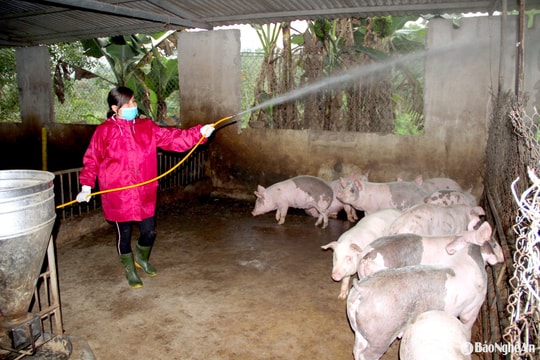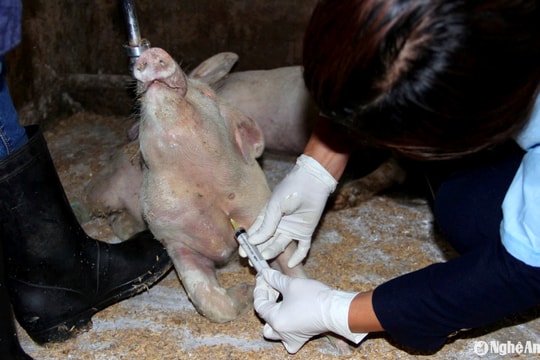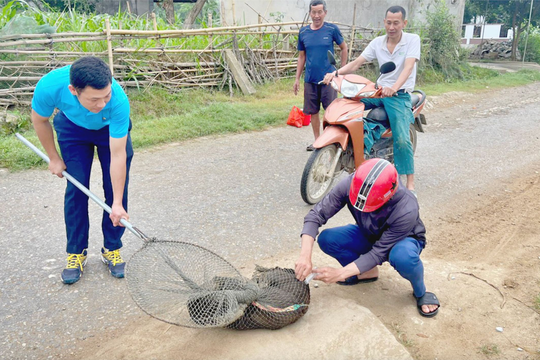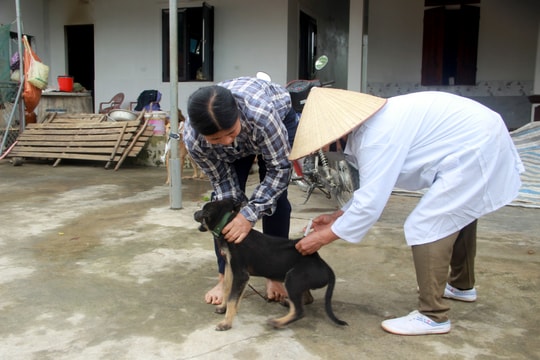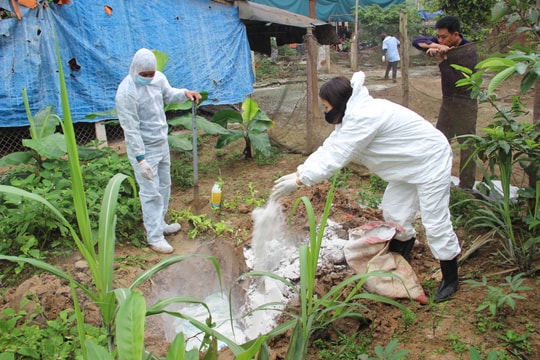Unsanitary conditions in pig slaughterhouses
(Baonghean.vn) - African swine fever is developing complicatedly, but at slaughterhouses concentrated in the market area of Yen Thanh town and slaughterhouses in Nghi Phu (Vinh city), hygiene has not been ensured.
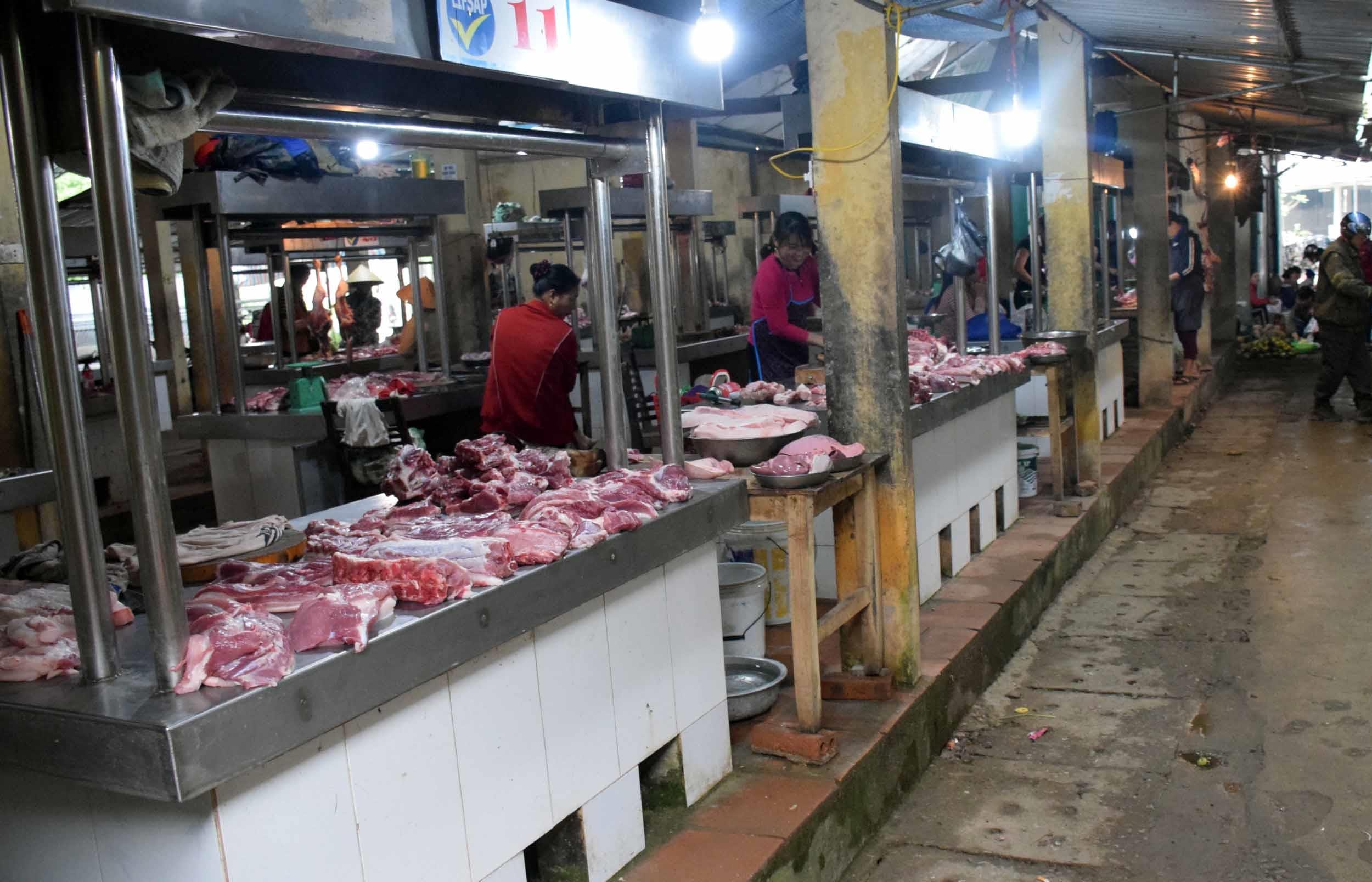 |
Pork selling area at Yen Thanh town market. Photo: PV |
Lack of disinfectant chemicals, broken sprayer
On the morning of March 7, at Yen Thanh town market, according to our observations, all pork stalls had been quarantined; meat products were stamped with quarantine by the veterinary agency. From early morning, veterinary staff directly inspected all types of pork products for sale.
However, at the slaughterhouse in Yen Thanh town market area, sanitation is not guaranteed. It is 9am, but the area where livestock are slaughtered is littered with pig blood and waste... and has not been cleaned. The pig pens have not been cleaned properly.
Ms. Vu Thi Lan - a veterinary officer in charge of veterinary medicine at Yen Thanh town market said: The slaughterhouse owner is responsible for cleaning the area, while the veterinary officer is responsible for spraying disinfectant chemicals. When the market is empty, she sprays chemicals in both the market and the slaughterhouse. However, currently, there are no chemicals in the slaughterhouse, and the sprayer, according to Ms. Lan, is being repaired because it is broken.
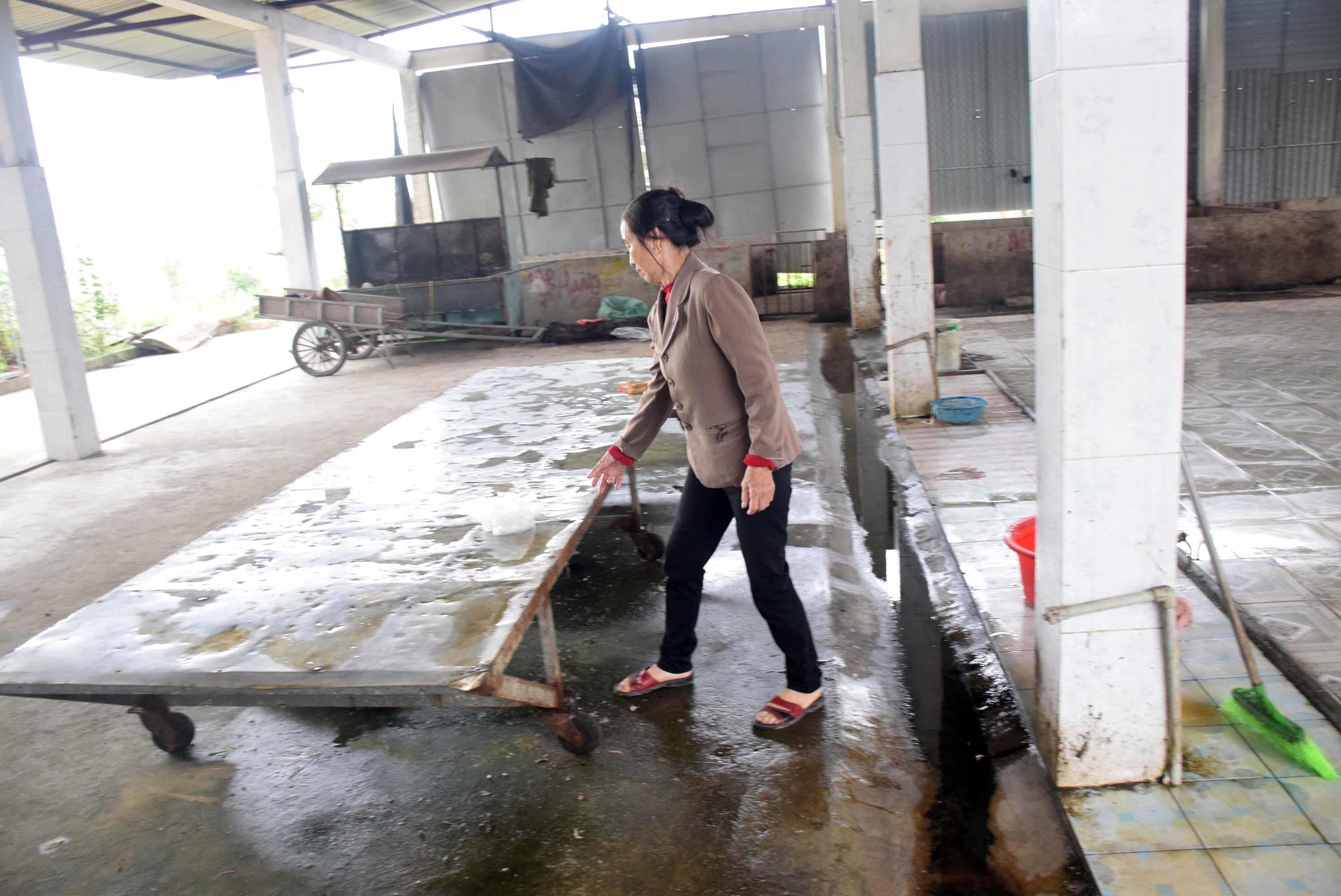 |
Ms. Vu Thi Lan - veterinary officer in charge of Yen Thanh town market admitted that hygiene after slaughtering pigs has not been ensured. Photo: PV |
Mr. Nguyen Khac Minh - Head of Yen Thanh District Veterinary Station said: Implementing the telegram of the District People's Committee on African swine fever prevention, according to the principle, immediately after the slaughter is finished, the slaughterhouse owner cleans the slaughterhouse area, and veterinary staff proactively sprays disinfectant chemicals in the entire slaughterhouse area. The same goes for markets, immediately after the market session ends, veterinary staff sprays disinfectant chemicals. The Veterinary Station has assigned specific tasks to commune veterinary staff for this matter.
It is known that in Yen Thanh district there are currently 16 centralized slaughterhouses and dozens of small slaughterhouses in households. Every day, Yen Thanh district slaughters about 150 pigs. Therefore, Yen Thanh needs to do a good job of epidemic prevention.
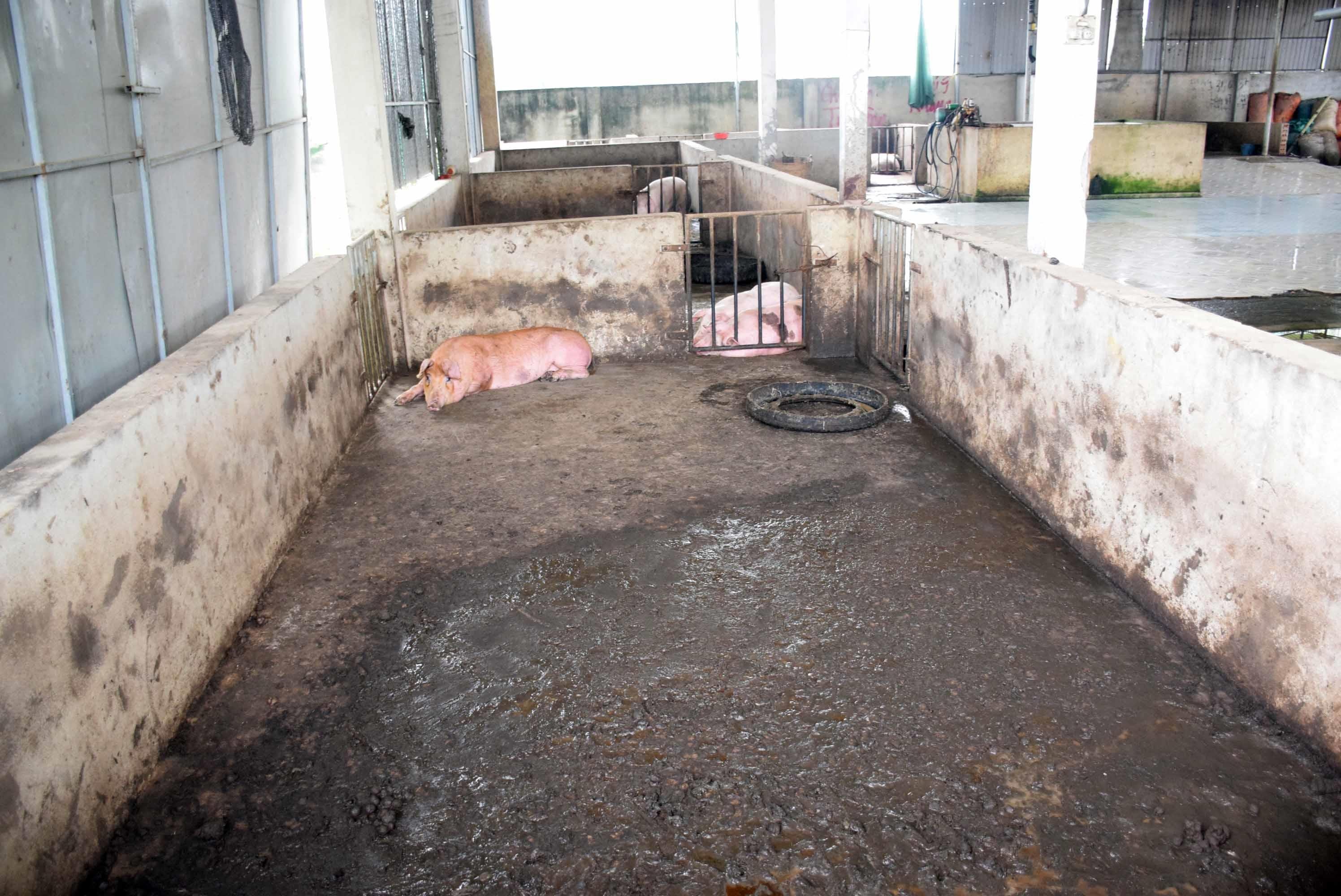 |
The pig holding area at Yen Thanh town market is also not cleaned regularly. Photo: PV |
The dangers of home slaughter
In Nghi Phu commune - the largest pork supplier for Vinh city, sanitation has not received due attention. Mr. Nguyen Huu Phuong in hamlet 13, Nghi Phu commune uses part of the yard behind his house as a slaughterhouse. Although he cleans the barn and well yard before and after slaughtering, this is not enough to prevent the epidemic completely. Mr. Phuong said: My barn is disinfected once a week. After slaughtering, wastewater will flow down the biogas pit, pig manure will be put into the tank to be transported as food for the fish pond.
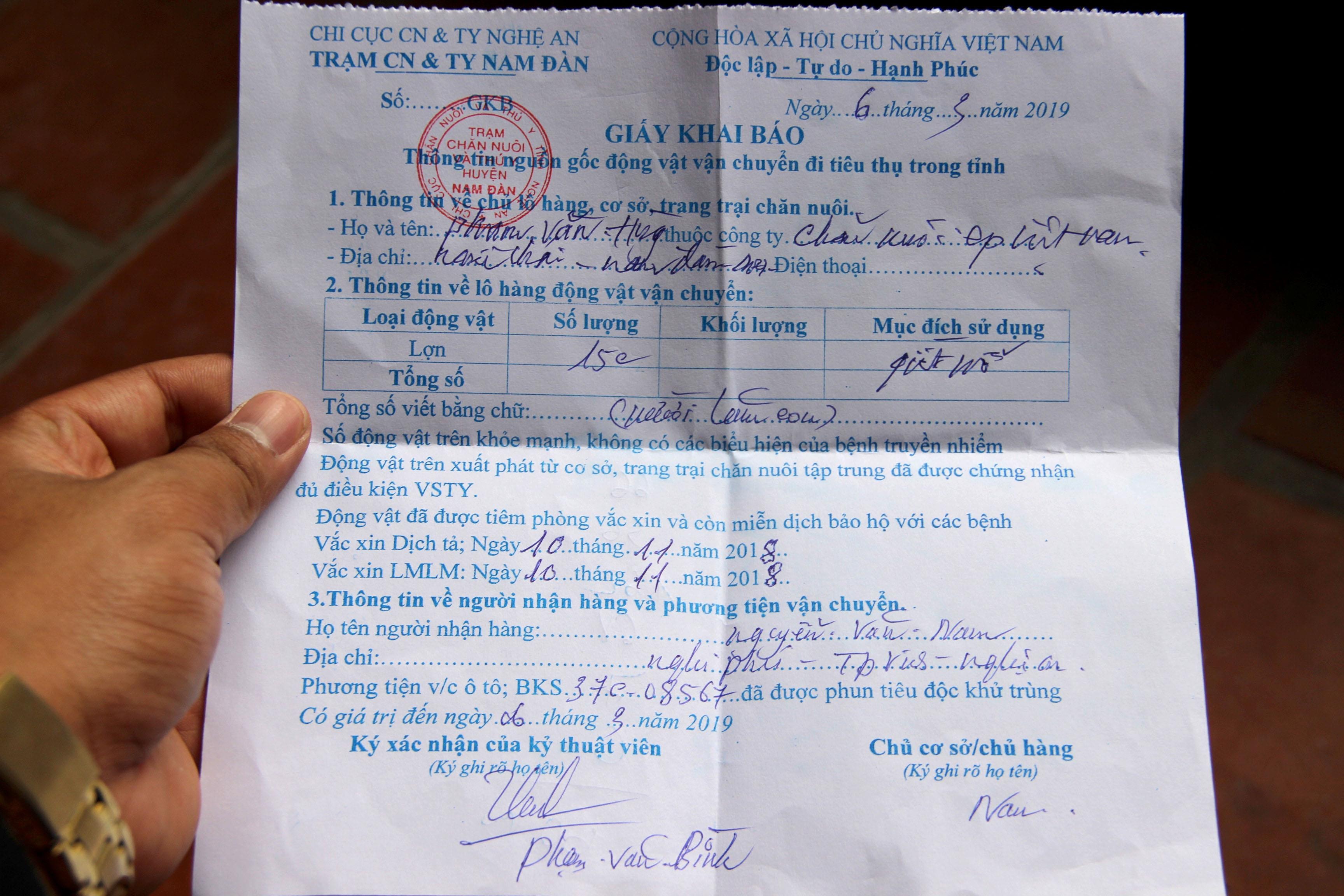 |
| Small slaughterhouses in Nghi Phu commune (Vinh city) have imported pigs. Photo: PV |
It is known that while Nghi Phu slaughterhouse is focusing on environmental treatment, households engaged in pig slaughtering have built home slaughterhouses to continue their business. However, among the 20 households engaged in home slaughtering in Nghi Phu commune, although they clean their barns daily, they do not spray disinfectant after slaughtering pigs.
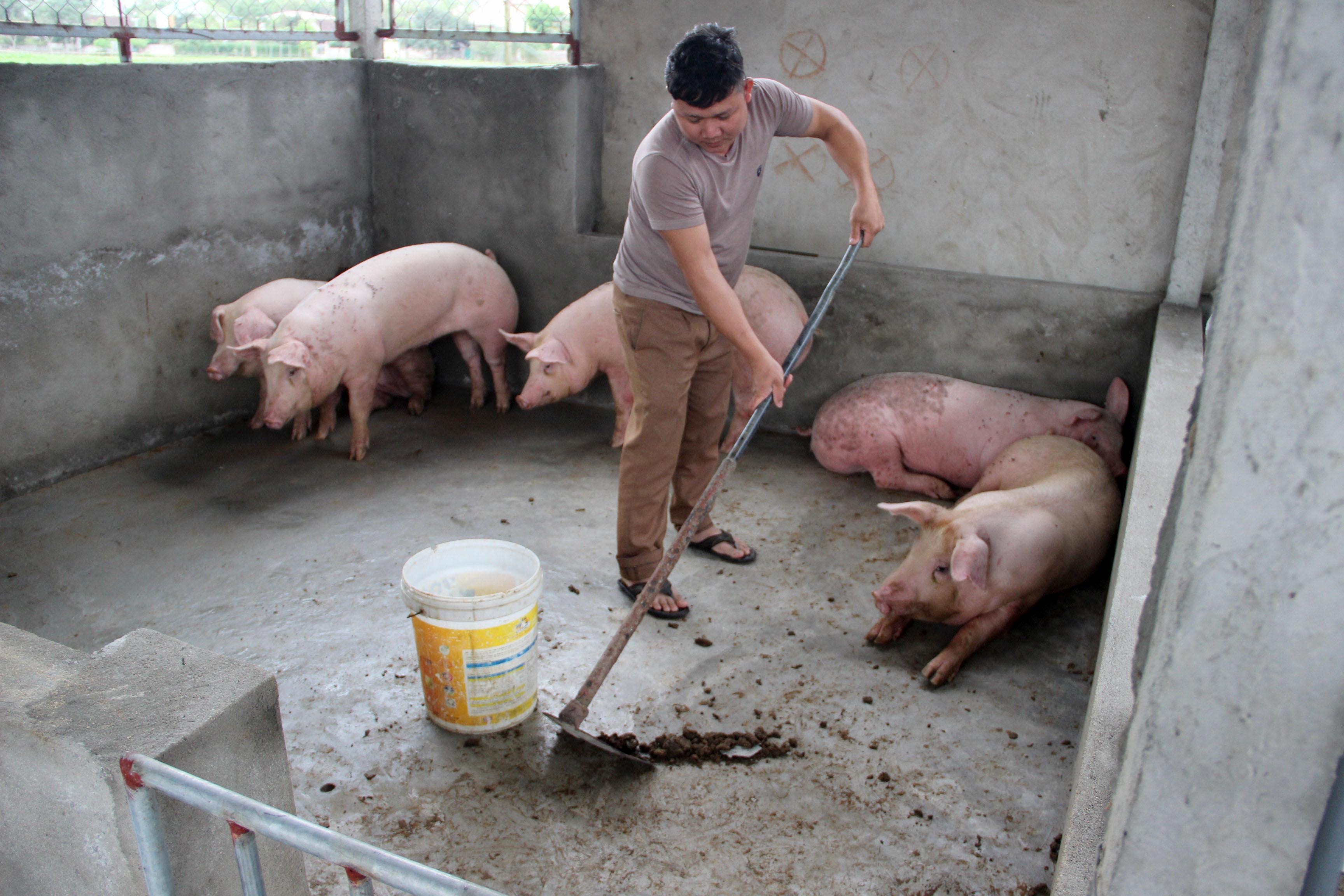 |
| However, after each pig slaughter, slaughterhouse owners do not spray disinfectant chemicals, but only spray them periodically once a week. Photo: PV |
Mr. Vo Ba Duong, a veterinary officer of Nghi Phu commune, said: Pigs are imported and slaughtered daily, and we also instruct households to clean regularly. Disinfectant spraying is done weekly, not daily because of the high cost and lack of veterinary staff.
Mr. Dang Van Minh - Deputy Head of the Department of Animal Husbandry and Veterinary Medicine said: To effectively prevent African swine fever, in accordance with Directive No. 07 of the Provincial People's Committee on African swine fever prevention, centralized and small-scale slaughterhouses at households, in addition to importing pigs of known origin, must also spray disinfectant chemicals before and after finishing a surgery and clean up thoroughly, combined with sprinkling lime powder in the slaughterhouse area.
District authorities are responsible for inspecting and controlling centralized slaughterhouses; Commune People's Committees inspect and control small-scale slaughterhouses in residential areas.

